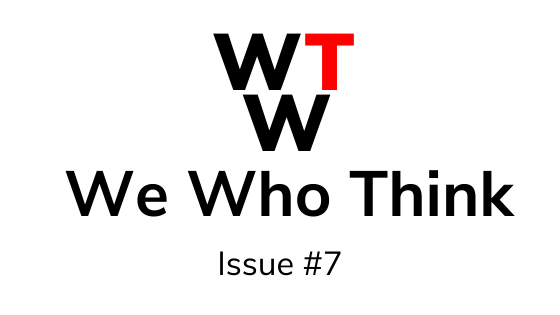Ditch your schedule | Things vs experiences | Alternate realities for action
We Who Think Issue #7

Every week we curate 3 ultra-focused ideas to reduce life complexity. On Saturday we share them with you via email.
Let’s start!
Your schedule is making you less productive
I am a time management junkie. I have tried every technique under the sun. I adapted and combined them in the perfect productivity cocktail.
Now I am able to accurately predict how long a task would take (well, most of the time), schedule it at the time of day that best suits it, (almost) never forget anything. But still, my task list isn't growing shorter and I go to bed each night with the painful conviction that I haven't done enough. I spend every waking minute thinking how to be more efficient. Every break is a sin.
I don't know where else to turn, I tried everything. So, I just found out maybe I need to do a 180.
I got this idea from the psychiatrist Adam Bell. He, too, was addicted to his schedule. He, too, always painfully felt behind, even after implementing all the right productivity techniques.
Then he realized he was the slave of his schedule. He viewed time as a scarce resource. This sucked him into a scarcity spiral:
This triggers a stress response, which can improve motivation in the short term, but often at the expense of morale in the long term. This blow to morale leads to a decline in productivity — an unhappy worker is a less productive worker. With lower productivity, there is even more time pressure to get things done.
The solution was to escape the scarcity spiral and to enter the abundance spiral. He threw away his schedule. He kept working doing what came natural.
HOW CAN THIS WORK? My mind shouts.
The answer:
Without the time pressure, you view time from an hourglass half-full perspective. This perceived abundance of time improves wellbeing, which in turn increases productivity. When productivity is high, there is less time pressure, and time feels even more abundant.
In a nutshell, the main benefit is that stress disappears (or greatly reduces). This allows you to do better work, avoiding shortcuts that help you get things done. They lead to subpar results and leave you exhausted and unsatisfied.
If you are stressed about your schedule, try ignoring it.
To become happier, should you buy stuff or experiences?
Money CAN make you happy. It depends on how you spend it.
But do you get more happiness from buying experiences (fleeting but intense) or things (permanent but shallow)?
Psychologist Elizabeth Dunn and her colleagues seem to have found the answer. It is a resounding... “it depends”. 😤
You can buy things more often than experiences. Moreover, even small purchases can give you a brief happiness boost.
But those "happy peaks" are smaller. And, most of all, they have shorter lives: only a few weeks.
On the other hand, experiences require more time, money and commitment. However, their effect on your happiness is far more intense and lasts longer. The best experiences guarantee life-long memories.
Even bad experiences have positive long term effects. The worst details are lost in favor of the good ones. You remember the lessons learned. You also get interesting and funny stories to keep recounting.
Last but not least comes hedonic adaptation:
The observed tendency of humans to quickly return to a relatively stable level of happiness despite major positive or negative events or life changes.
You guessed it: experiences don't trigger hedonic adaptation as much as things. You quickly get used to your new car or jacket. But you keep dreaming of the holiday trip you take once a year.
So, for lasting happiness, invest on experiences. For small boosts rely on things. But beware: things will quickly get old. You risk finding yourself spending more and more only to keep your current happiness level.
Choose the alternate reality that favors action
Imagine you have to walk across a plank. It's wide enough for your two feet. If it were lying on the ground it would be child's play.
Now, what happens if it's a few meters from the ground? Falling down would seriously harm you. Fear ensues. It turns into an almost impossible challenge. You are paralyzed.
But it's still the same plank as before. You should choose the perspective that helps you take action.
Tell yourself that the plank is lying on the ground. Or that on the other side there is a house on fire with a child screaming inside.
This is a metaphor for life. When you have to start something difficult, don't aim for reality, [aim for the perspective that makes you take action](
For example, do you love learning? Imagine how a project you loathe could help you develop new skills.
Do you like novelty? Imagine how the project could take you to an uncharted, exciting territory.
Thank you for reading this newsletter.
Now, I’m curious about you.
What decisions are challenging you at the moment? What are the mental strategies that you find more helpful?
Write me back!
And don’t forget to share We Who Think with your smartest friends. Thank you!
Until next week,
Alberto
PS Did someone forward this issue of the We Who Think newsletter to you? Join us by signing up here.
This newsletter is free. But you can still support our work.
Finding the right content and extracting the best insights from them, take time. Do you like what you read here on WWT?
Then consider to support us with a paid subscription.

